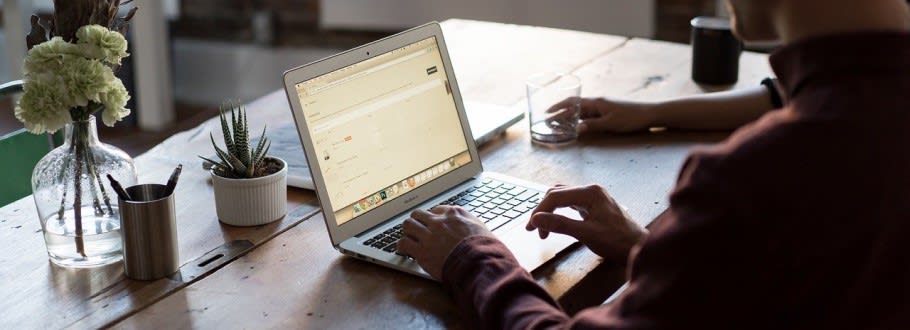6 Things to Consider Before Working During a PhD
There are many reasons why you might choose to work during a PhD. You may need a part time job to financially sustain yourself, or want something to take your mind off research from time to time (or both!). But the truth is, taking on two major responsibilities isn’t easy.
Being aware of the challenges before you face them will help you tackle them head on. Learning to balance both work and studies will enable you to minimise the stress and maximise the reward! So, we’ve picked out six of the most important things to consider before working during a PhD.
Before we start, it’s worth acknowledging the virus-shaped elephant in the room. Yes, the COVID-19 pandemic has made it harder to do some traditional student jobs (working in hospitality being an obvious example). But the work you can do during a PhD is a bit more diverse and many roles – such as editing, or even teaching – work well online.
#1 You’ll have less free time
The most obvious of the bunch: be warned that juggling a job and a doctorate means free time will become minimal. If either your job or PhD will be full time, then fitting in another responsibility will eat into your evenings and weekend. This could be difficult at first as you’ll need to establish a new routine. Longer hours might take time away from visiting family and meeting friends. You’ll have to decide if this is something you’re willing to sacrifice for the coming years.
If both your job and PhD will be part time, then this balance might not seem as much of an issue. Be warned though: while you’ll have more hours in the week to juggle with, additional academic opportunities such as research trips and conferences will take up more time than expected.
#2 You’ll have double the deadlines
Both a job and a PhD will require you to stay on top of things and work at a decent pace. While impending deadlines from two different positions might create some very stressful weeks, they could also give you the right amount of pressure to stay productive.
Having two different work outlets can help your brain switch off properly from one when you’re working on the other. Having a break from a task can often help clear your thoughts. However, you will still be limited by time.
If you know you’re someone that is capable of working under pressure, and doesn’t struggle too much with procrastination, then you’ll probably be up for the challenge. You might even enjoy it! But if being under pressure doesn’t work well for you, then you need to decide if it’s something you could cope with.
#3 Flexibility may be an issue
A PhD comes with the opportunity to participate in a variety of academic events, including research seminars, conference trips, and so on. Unfortunately, these events are not very flexible. Also, if you decide to pick up teaching then you will likely have little control over your allocated hours.
So, if you already have work responsibilities then you may end up missing out on some great opportunities. Make sure to talk with your boss and see if they can offer you any flexibility in terms of workdays or hours. If you’re lucky you might never have to shift your schedule, but it’s worthwhile knowing how much leeway you have just in case.
#4 You’ll need to manage expectations
Following on from the last point, it’s important to let both your boss and your supervisor know your plans. This will help them be more understanding if problems should arise and be in a better position to help you if need be. I’m sure you will be fine, but everyone has an off week!
You’ll also need to manage your own expectations. Some weeks will be harder than others. If you set your sights too high, it’ll be easy to fall in a rut. Make sure your goals are manageable and be willing to adapt your plans if need be. If you take each day as it comes, you’ll avoid getting overwhelmed.
#5 Make sure you know how to take care of yourself
It can be really easy to feel like a failure after a bad week at the office, the lab, or the library (even if all three of these places are actually the desk in your flat right now). It will be important to take time to relax and remember who you are outside of your job and PhD. Make sure you schedule self-care. Don’t overwhelm yourself in your free time.
Another good technique is to set strict work hours. It’s easy to accidently work all evening if you’ve had an unproductive day, but that will only make you tired and unproductive tomorrow. Taking time to switch off is important.
#6 It’s not easy, but it can be very rewarding
Completing a PhD is not a short process, so you’ll be in this situation for the long haul. Once you’ve got a productive and healthy routine going then working during a PhD can be extremely rewarding. Not only do you get double to opportunity to excel but you also get double the colleagues to have a laugh with.
If the week isn’t going so well at work, then you have the chance to lift your spirits by working hard at your research, and vice versa. You’ll also be building upon your skillset in two different settings which could prove beneficial in the future.
At the end of the day you’ll be able to give yourself the credit that’s due because there’s nobody that can say you’re not working hard!
Our postgrad newsletter shares courses, funding news, stories and advice
What makes a successful PhD?
From the right mentality to a good idea, we've collected a number of things you're going to need to succeed in your PhD.

 Continue with Facebook
Continue with Facebook





